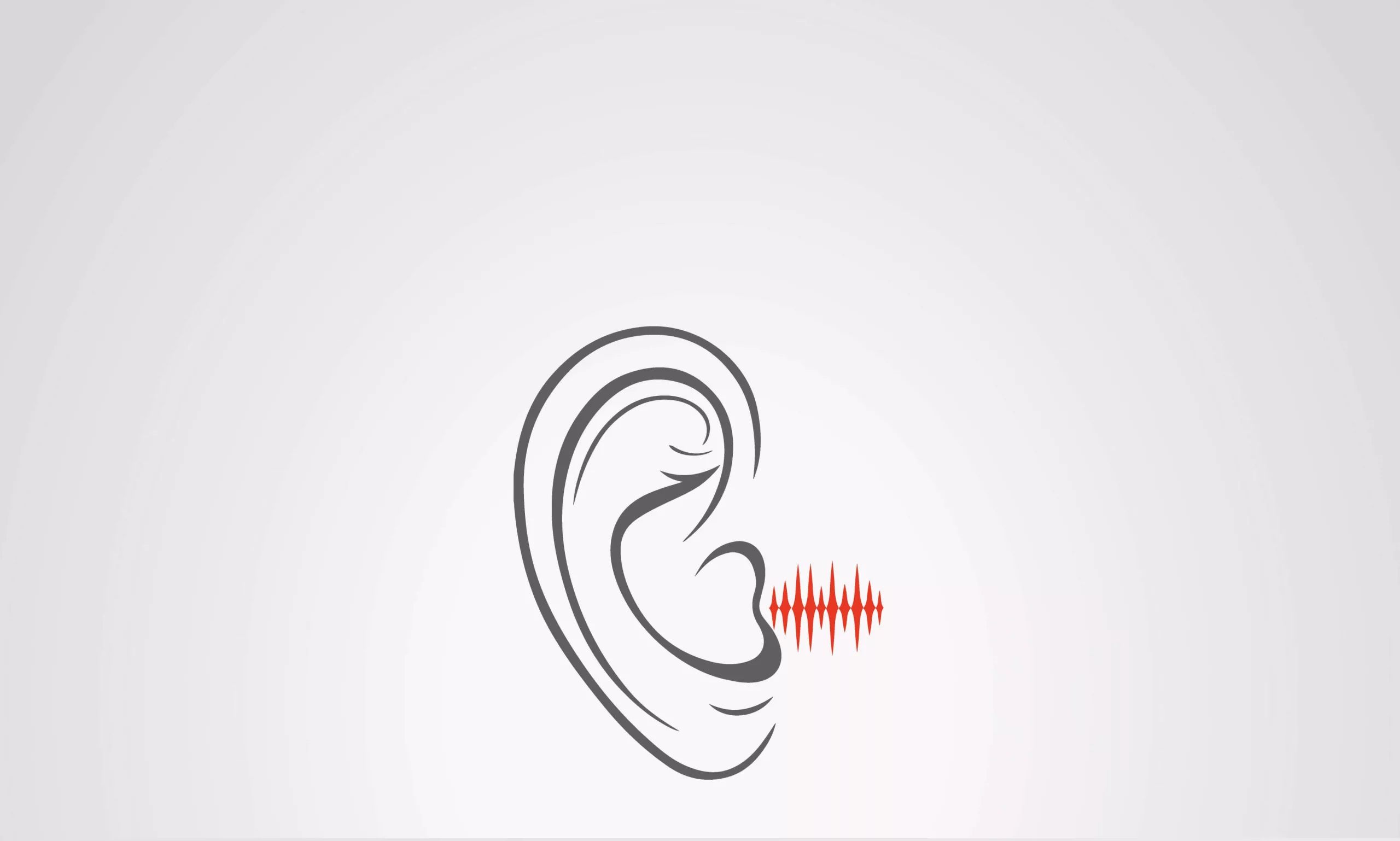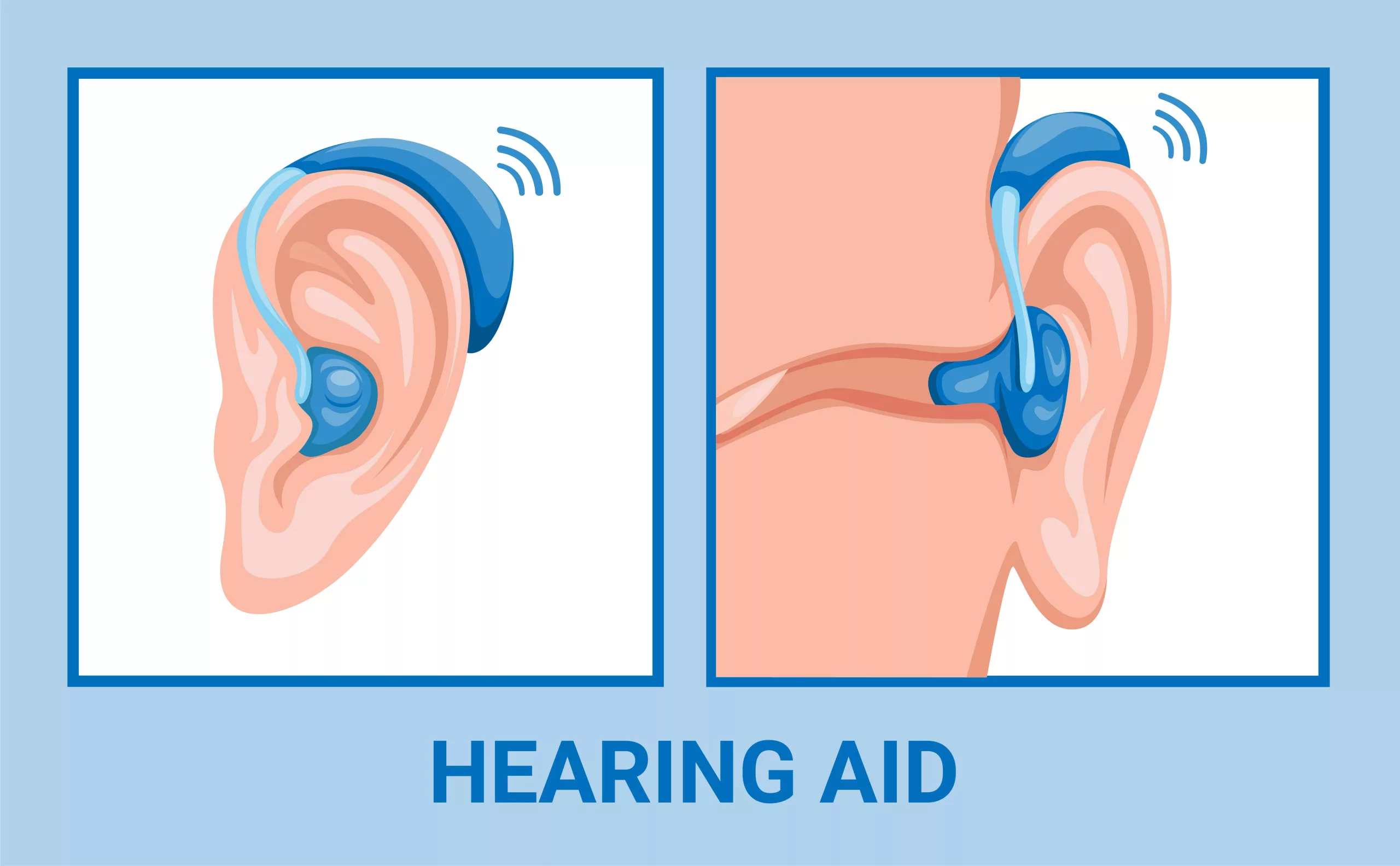Hearing loss can significantly impact the quality of life, making it essential to explore various types of hearing aids. It does not matter if you’re exploring the convenience and accessibility of over-the-counter solutions or considering the discreet and custom-fitted Completely-In-Canal hearing aids. We will delve into the benefits of hearing aids, focusing on the “OTC Hearing Aids” (Over-The-Counter) and “CIC Hearing Aids” (Completely-In-Canal).
Our aim is to provide you with the knowledge and insights you need to take a significant step towards improving your hearing and overall quality of life. Fortunately, modern technology has provided us with a range of solutions to address hearing loss, with hearing aids being among the most effective and widely used.
Let’s embark on this informative journey into the world of hearing aids, so you can make the best choice for your unique hearing challenges and lifestyle.
What are OTC Hearing Aids?
Over-The-Counter (OTC) hearing aids are designed for individuals with mild to moderate hearing loss. They are accessible without the need for a prescription and can be purchased directly by consumers. OTC hearing aids are becoming increasingly popular for their convenience.
Advantages of OTC Hearing Aids
One of the main advantages of best OTC hearing aids is accessibility. They allow users to take control of their hearing health without lengthy medical processes. They are also typically more affordable than their counterparts. Their other advantages are:-
- Accessibility: Best OTC hearing aids offer a significant advantage in terms of accessibility. They empower individuals to manage their hearing health independently, without the need for complex medical procedures.
- Affordability: OTC hearing aids are generally more budget-friendly compared to their traditional counterparts, making them a cost-effective option for many.
Limitations of Over-The-Counter (OTC) Hearing Aids
OTC hearing aids offer accessibility and affordability but may fall short in addressing severe hearing loss or specific medical requirements due to their limited customization and professional oversight. However, OTC hearing aids may not be suitable for those with severe hearing loss or specific medical conditions. They lack the customization and professional calibration found in traditional hearing aids, potentially leading to suboptimal outcomes.
- Not Suitable for Severe Hearing Loss: OTC hearing aids may not be suitable for individuals with severe hearing loss. Their effectiveness tends to diminish when addressing more profound hearing impairment.
- Lack of Customization: Unlike traditional hearing aids, OTC variants lack the personalized customization and professional calibration that can be tailored to an individual’s unique hearing needs. This limitation could result in less-than-optimal outcomes for some users.
- Inadequate for Specific Medical Conditions: Some medical conditions or complex hearing issues require specialized treatment and attention. OTC hearing aids may not provide the necessary features or adjustments needed to address these conditions adequately.
It’s essential for individuals with hearing concerns to consider their unique needs when deciding between OTC and traditional hearing aids.
Notable Brands
Several manufacturers offer best OTC hearing aids, each with its unique features and benefits. Some well-known brands in this category include Ergo, Bose, and Nano.
What are CIC Hearing Aids?


Completely-In-Canal (CIC) hearing aids are a discreet and cosmetically appealing solution for those with mild to moderately-severe hearing loss. They are custom-fitted to the ear canal, making them virtually invisible.
Benefits of CIC Hearing Aids
CIC hearing aids are appreciated for their discreetness, providing a high level of cosmetic appeal. They also offer natural sound quality and excellent speech recognition.
- Discreet Appearance: CIC hearing aids are highly valued for their discreetness. They are custom-fitted to sit entirely within the ear canal, making them nearly invisible when worn. This discretion is particularly appealing to individuals who prioritize cosmetic appeal.
- Natural Sound Quality: CIC hearing aids are designed to provide a natural and clear sound experience. They can reproduce sounds more faithfully, allowing users to enjoy a more authentic listening experience.
- Excellent Speech Recognition: CIC hearing aids are known for their effectiveness in improving speech recognition. By being placed close to the eardrum, they can capture and amplify speech with greater precision, enhancing communication in various situations.
These advantages make CIC hearing aids a popular choice for those seeking both discreetness and high-quality sound amplification. However, it’s important to note that CIC hearing aids may not be suitable for all individuals.
As their small size limits some features and may not accommodate severe hearing loss or specific medical conditions. Consulting with a hearing healthcare professional is advisable to determine the best hearing aid option based on individual needs.
Challenges associated with CIC Hearing Aids
On the downside, CIC hearing aids may have smaller batteries, leading to shorter battery life. Additionally, they may not be suitable for those with dexterity issues, as they are relatively small and require precise handling.
- Limited Battery Life: CIC hearing aids are designed to be compact, which means they typically use smaller batteries. As a result, one of the primary challenges associated with CIC hearing aids is their shorter battery life compared to larger hearing aid models. Users may need to replace batteries more frequently, which can be inconvenient and potentially costly.
- Precise Handling Required: Due to their small size and discreet placement deep within the ear canal, CIC hearing aids demand precise handling. This can pose challenges for individuals with dexterity issues, such as older adults or those with limited fine motor skills. Inserting and removing CIC hearing aids and changing batteries can be more difficult for individuals with these limitations.
The choice of hearing aid should be based on individual hearing needs, lifestyle, dexterity, and budget considerations to ensure the best possible hearing solution. Maintenance tasks can be intricate, and some users may find them challenging to perform consistently.
Leading CIC Hearing Aid Brands
Notable brands that specialize in CIC hearing aids include Phonic, Starkey, and Siemens. These brands are known for their innovation in miniaturization and technology.
Factors to Consider When Choosing Types of Hearing Aids


When choosing between OTC and CIC hearing aids, it’s essential to consider your lifestyle and specific hearing needs. OTC aids may suffice for those with mild hearing loss, while CIC aids are more suitable for individuals looking for discreetness.
Budget Considerations
Cost is a significant factor to consider. OTC hearing aids are generally more affordable, making them accessible to a broader audience. However, CIC hearing aids offer superior customization and technology, but at a higher price point.
The Technology behind Hearing Aids
OTC hearing aids incorporate advanced sound processing and customization features, allowing users to adapt their devices to different listening environments. Some even offer connectivity options to smartphones and other devices.
While CIC hearing aids excel in miniaturization, making them nearly invisible. They deliver excellent sound quality and advanced speech recognition technology while ensuring a comfortable fit.
User Experience and Comfort
OTC hearing aids are designed for ease of use and comfort. They are user-friendly and can be adjusted by the wearer. Many users appreciate the convenience they offer.
CIC hearing aids provide a high level of discretion and comfort. Wearers appreciate their almost invisible design. However, there may be an adjustment period for users transitioning from traditional aids.
Customer Reviews and Recommendations
To gain insight into the real-world performance of OTC and CIC hearing aids, it’s essential to read customer reviews and recommendations. Users share their experiences, highlighting the pros and cons of each type of hearing aid.
Professional Advice and Consultation
Regardless of whether you opt for OTC or CIC hearing aids, it’s crucial to consult with an audiologist or hearing healthcare professional. They can assess your hearing needs, conduct necessary tests, and recommend the most suitable hearing aid.
Conclusion
The choice between Over-The-Counter (OTC) and Completely-In-Canal (CIC) hearing aids is a decision that should be made with careful consideration of individual preferences, hearing requirements, and financial considerations.
OTC hearing aids provide accessibility and affordability, making them a practical choice for some users, while CIC hearing aids are prized for their discreetness and advanced technology, enhancing the overall listening experience.
Consulting with a hearing healthcare professional can be invaluable in guiding you toward the most suitable hearing aid solution that aligns with your specific needs and preferences. Ultimately, the goal is to improve your hearing and enhance your overall quality of life through the choice that best suits you.




